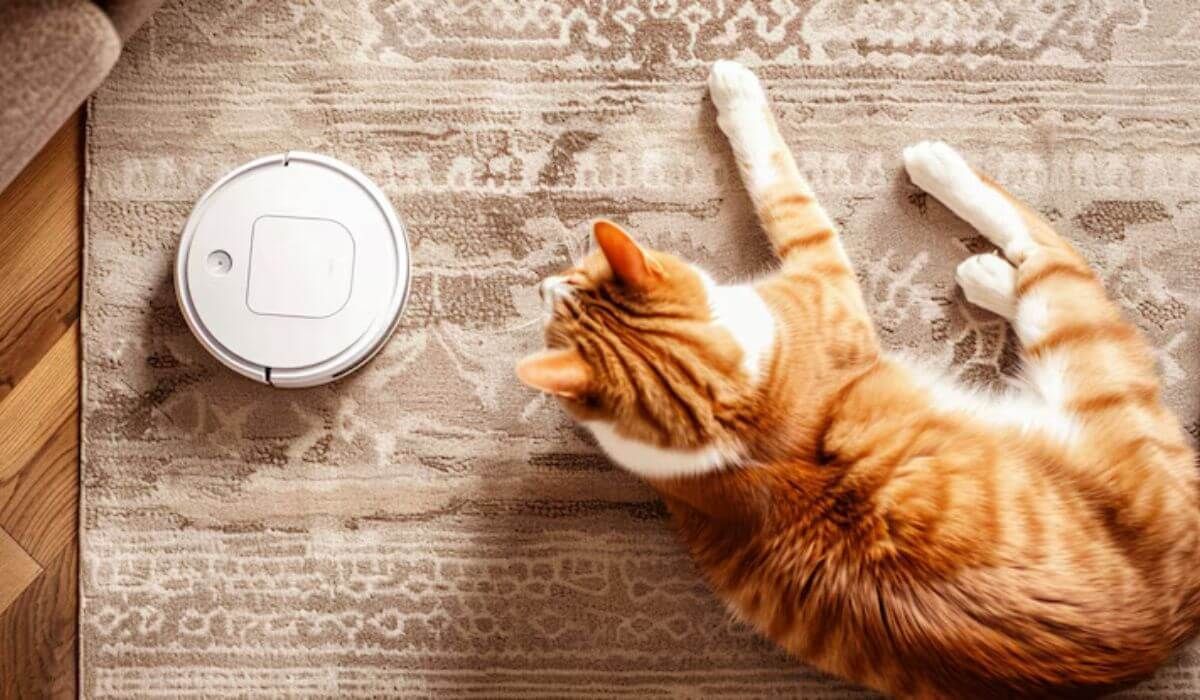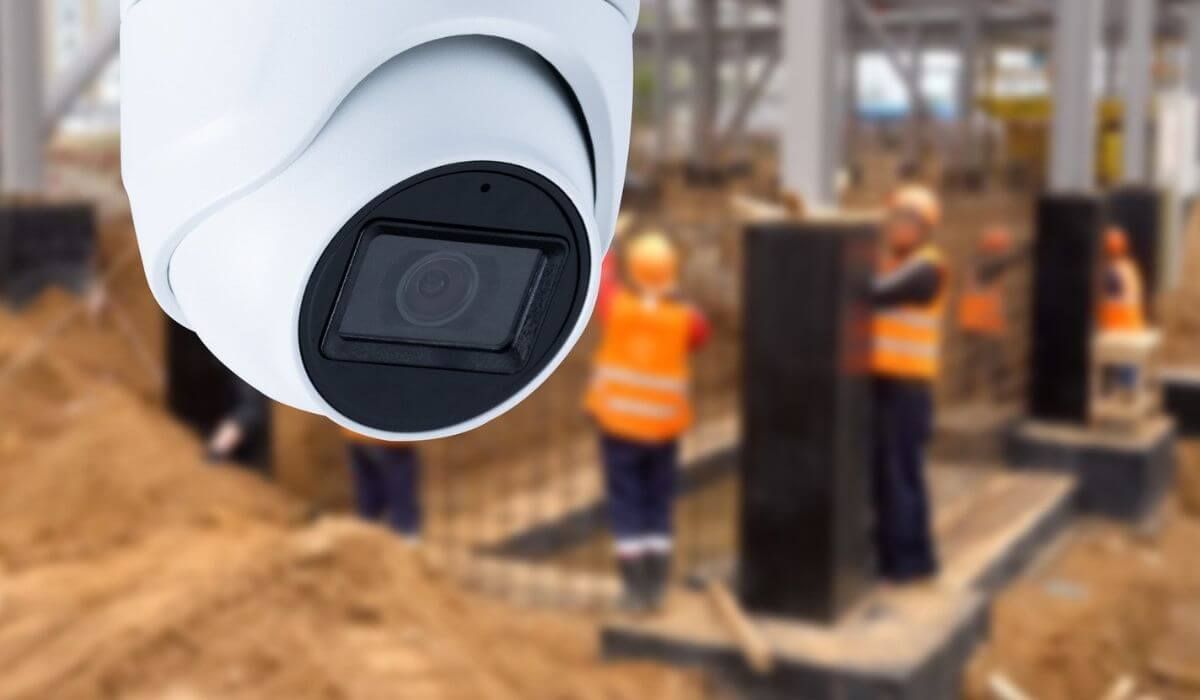Pet-Friendly Motion Sensors for Homes with Pets
False alarms are more than a minor annoyance—they can compromise your home’s safety, disrupt your daily routine, and scare your pets. If you're a pet owner in Australia, choosing the right motion sensor technology is essential. With pet-friendly motion sensors becoming more advanced and accessible, there's no reason to sacrifice home security for the sake of your pets. Let Scavi help you build a smarter, safer, and more pet-conscious home.
The Growing Need for Pet-Friendly Security Solutions in Modern Homes
Why Traditional Motion Sensors Don’t Work for Pet Owners
Most traditional motion sensors use PIR (Passive Infrared) technology to detect movement based on body heat. The problem? These sensors can’t tell the difference between an intruder and your furry companion. A cat jumping onto a windowsill or a dog pacing around at night can easily trigger an unwanted alarm.
Over time, frustrated homeowners may resort to switching off their alarms entirely—leaving their homes unprotected. That’s why homes with pets need smarter detection methods that offer accuracy and peace of mind.
Common False Alarm Triggers Caused by Pets
Several everyday pet behaviors often trigger false alarms, including:
- Pets walking into active sensor zones
- Jumping onto couches, beds, or counters
- Wagging tails brushing past sensor areas
- Multiple pets moving around at once
These are natural and harmless pet activities, but to basic systems, they mimic suspicious motion. Without tailored technology, false alarms can become an everyday issue.
How Pet-Friendly Technology Has Evolved
The security industry has responded with impressive advances:
- Weight-based filtering: Ignores animals under a preset weight (typically 25kg)
- Pattern and shape analysis: Detects differences in how pets and humans move
- AI-enhanced systems: Learn and adapt over time
- Integration with live cameras: Lets users verify motion before triggering alarms
These innovations help keep homes protected while allowing pets to move freely.

What Are Pet-Friendly Motion Sensors and How Do They Work?
Defining Pet Immunity in Motion Detection
Pet immunity is a key term in motion sensing. It means that the sensor can ignore pets below a certain weight limit. Most systems are designed to ignore animals under 25kg, which is suitable for the majority of household pets.
Some advanced systems use shape recognition and movement analysis to further reduce false alarms. This is especially helpful for active pets like dogs that frequently roam.
Key Features That Differentiate Pet-Compatible Sensors
Here’s what makes pet-friendly motion sensors stand out:
- Adjustable sensitivity settings that can be tailored to your pet’s size
- Dual-sensor technology, often combining PIR and microwave detection
- AI learning, so the system becomes smarter over time
- Smart zoning, to avoid low-level areas where pets usually roam
These features work together to create a more accurate, less disruptive security system.
PIR Sensors vs. Microwave Sensors – Which Is Better for Homes With Pets?
- PIR (Passive Infrared) sensors are affordable and work well for small pets but can be triggered by heat sources.
- Microwave sensors are more precise, using radar-like detection, but are sometimes too sensitive.
- Dual technology sensors combine both types and are generally the best option for homes with pets.
Scavi often recommends dual sensors because they balance accuracy and stability.
Best Practices: How to Prevent False Alarms in Homes With Pets
Proper Sensor Placement and Installation Tips
Correct installation is key. Place sensors:
- At heights between 2.2 to 2.4 metres
- Away from areas your pet can jump onto, like couches or countertops
- Not directly facing heat vents, windows, or reflective surfaces
These adjustments help avoid unnecessary triggers and improve system reliability.
Sensor Sensitivity Settings and Adjustment Guidelines
Make use of your system’s adjustable settings:
- Lower sensitivity settings to ignore small movements
- Use “away mode” features that account for pet activity
- Program your system based on daily routines to avoid confusion
Environmental Factors That May Trigger Alerts
Some triggers aren’t pet-related. Watch out for:
- Blowing curtains or blinds
- Hot air vents directly in the sensor path
- Bright lights or sun glare
Simple adjustments like securing curtains or repositioning vents can greatly reduce false alarms.
Combining Sensors With Cameras for Smarter Detection
Smart cameras add another layer of security:
- Get a visual confirmation of what triggered the alert
- Use real-time viewing via mobile apps
- AI-powered systems learn to differentiate between normal and suspicious movement
This combined setup provides better context and faster decision-making.

Top Pet-Friendly Motion Sensors in 2025
Overview of Scavi-Recommended Devices
Scavi proudly offers a range of reliable sensors tailored to pet-friendly homes:
- Compact indoor sensors: Great for apartments or small pets
- Dual-sensor options: Equipped with AI for accurate filtering
- Wide-range sensors: Designed for larger properties and multiple pets
- Budget models: Practical yet effective for basic pet immunity
Each product is tested and approved by our team to meet Australian home standards.
Pros and Cons of Wireless vs. Wired Motion Sensors for Pet Owners
Wireless and wired setups both offer unique advantages:
- Wireless sensors are easy to install, portable, and ideal for renters. But they need battery maintenance.
- Wired sensors provide stable, long-term security and are preferred for larger homes, although installation is more involved.
At Scavi, we help determine the right choice based on your home and lifestyle.
Budget-Friendly Options vs. Premium Systems
- Budget systems are ideal for first-time users or small apartments
- Premium setups are best for families with multiple pets or specific customization needs
We ensure every customer gets maximum value without compromising safety.
Integrating Pet-Safe Motion Sensors Into a Complete Home Security System
How to Combine Alarms, Cameras, and Smart Devices Effectively
Pet-friendly motion sensors work best when connected to other smart tools:
- Link to alarms, smart lights, and voice assistants
- Use mobile apps to monitor everything remotely
- Get alerts tailored to your pet’s behavior
A connected ecosystem gives you full control and flexibility.
Benefits of Monthly Monitoring Plans for Pet Owners
With Scavi’s monitoring plans, you benefit from:
- 24/7 support from trained professionals
- Fewer false alarms and emergency callouts
- Systems that learn your pets’ behavior patterns
This is a major relief for pet owners who are often away from home.
Custom Security Plans With Scavi – Tailored for Pets and People
We understand every household is different. That’s why our custom plans:
- Begin with a personal consultation
- Include expert sensor placement for pet activity
- Provide ongoing support and maintenance
Scavi is here to make security personal, reliable, and pet-friendly.
Real-World Benefits: Why Pet Owners Choose Pet-Friendly Systems
Peace of Mind at Work or While Traveling
Whether you’re on a quick trip or at work for the day, pet-friendly systems:
- Send smart alerts
- Allow quick checks through your phone
- Ensure your home and pets are secure
Reducing Emergency Callouts From False Alerts
False alerts can cause unnecessary panic and fees. With pet-compatible sensors:
- You avoid unnecessary emergency responses
- Alerts are verified with AI or camera footage before action is taken
Creating a Safer, More Comfortable Environment for Pets
No one wants to frighten their pets with loud alarms. Pet-safe systems:
- Minimize disruptions
- Allow pets to move freely
- Keep your home peaceful and secure

FAQs About Pet-Friendly Motion Sensors
What size pets can be detected or ignored by pet-safe sensors?
Most sensors ignore animals under 25kg, but some are adjustable for smaller or larger pets.
Can pet-friendly sensors work with cats and multiple pets?
Yes. Many models are designed to accommodate multi-pet households.
Do I need professional installation for these sensors?
Professional installation ensures optimal placement and reduces false alerts. DIY options are available but may be less accurate.
How do I know if my alarm system is triggering because of my pet?
Use your system’s mobile app or integrated cameras to check real-time activity and confirm triggers.
Are pet-friendly sensors more expensive than traditional models?
They may cost slightly more but offer better long-term value for homes with pets.
False alarms don’t just disrupt your routine—they can distress your pets and leave your home vulnerable. That’s why more Australians are turning to Scavi for pet-friendly motion sensors designed with both people and pets in mind. Get in touch today to explore our tailored solutions—because you and your pets deserve comfort and safety in every corner of your home.



